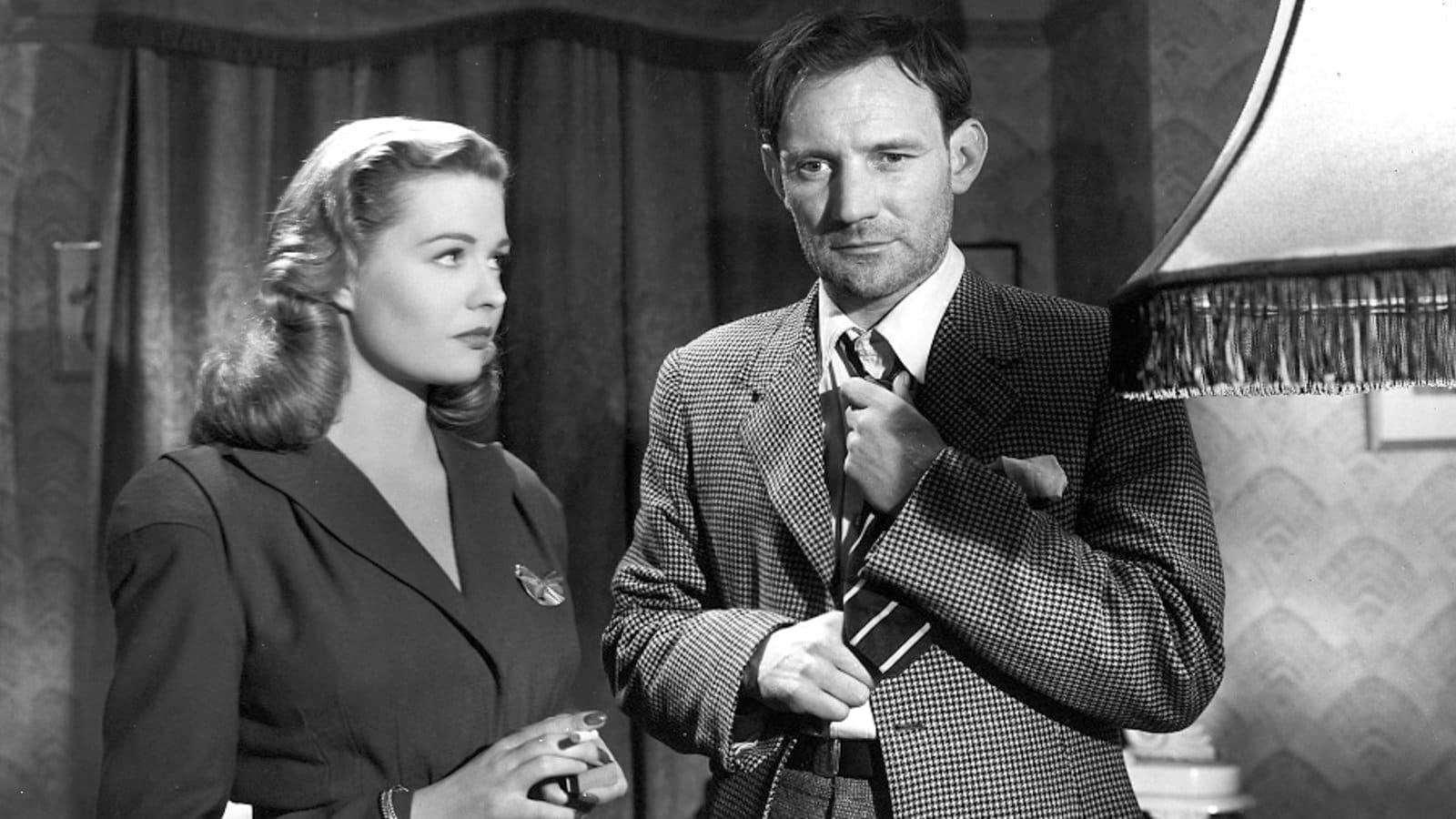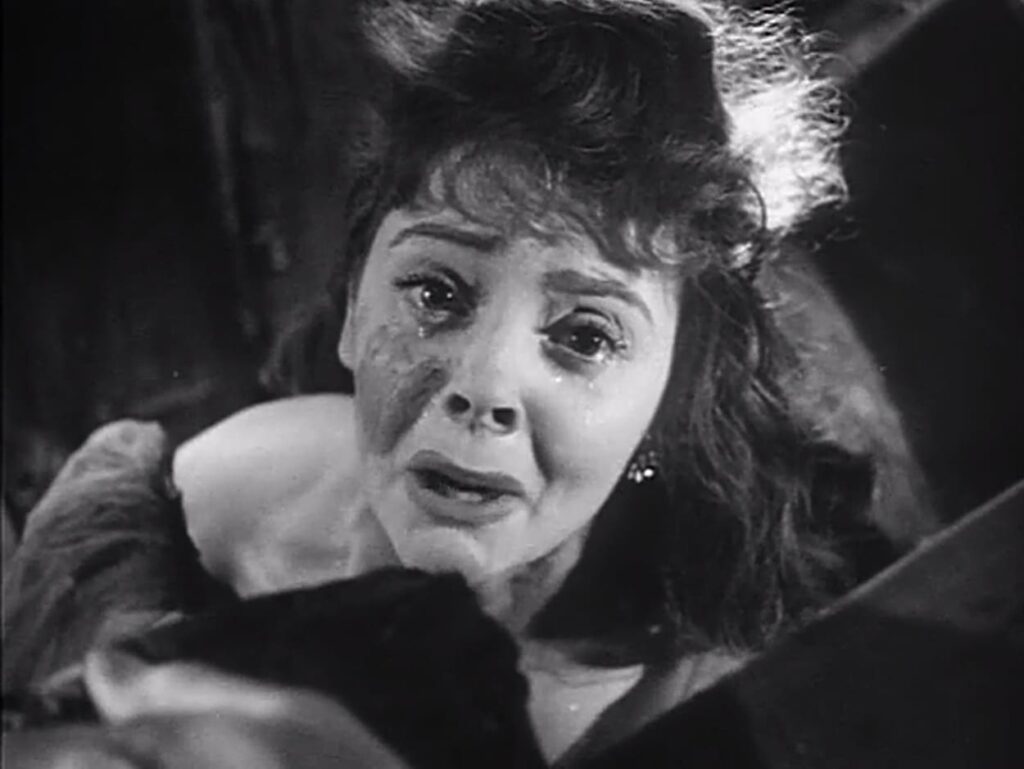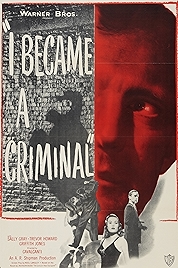Exactly why the 1947 crime drama They Made Me a Fugitive was renamed I Became a Criminal for its US release is something of a mystery. One is more passive, the other more active, yup, understood. But the original title is better, punchier and asks a question – who made who a criminal? Whereas the US title is kind of flappy – so you became a criminal, so what?
The irony is that this British movie really wants to be an American one. It’s soaked in the stylings, characters and logic of film noir, with mean streets, a femme fatale and a slightly off-centre Mr Big at the centre of it. Though, this being the UK in the post-war period, the action is set among the spivs who had such a grip on the public imagination: rationing was still in force but knock-off stuff could be bought on the black market, if you knew the right person.
Plotwise, it’s a revenge story – down-on-his-luck Clem (Trevor Howard), an ex RAF man, joins a gang of black marketeers who operate out of a funeral home, only to fall foul of the boss, Narcissus, aka Narcy (Griffith Jones), after voicing his objections to drugs being part of the business. To solve the Clem problem and to gain access to Clem’s girl, Ellen (Eve Ashley), Narcy frames Clem for the murder of a policeman.
From here it’s a case of a jail breakout and a cross-country trek by Clem, meeting jeopardy on the way, for a showdown with Narcy, aided by Sally (Sally Gray), Narcy’s girl, or ex-girl since Ellen took that slot.
It’s a good story – thrilling, with unexpected twists. For example: fugitive Clem breaks into a house for food and new clothes. But once inside he finds that its occupant, a Mrs Fenshaw (Vida Hope), isn’t meek and terrified but prepared to use his presence for her own ends. At another point Clem hitches a ride with a lorry driver who also seems likely to outsmart Clem.
Warped loyalties is a theme thoughout – gang boss for gang members, women for their men, men for their women, the country for its demobbed servicemen – but Noel Langley’s adaptation of the original novel by Jackson Budd keeps its subtexts as subtexts. Over the top he layers what he possibly thinks is Raymond Chandler-esque wit. It isn’t – it’s not wiseguy enough – but Langley’s script is still smart and full of zingers.
The director is Alberto Cavalcanti, the Brazilian who learned his craft in France before arriving in the UK to become a documentarian with John Grierson’s troupe at the General Post Office. Cavalcanti brings touches of both French poetic realism and documentary grit to his direction. This is a lean and spare movie but Cavalcanti throws in the odd dislocating shot here and there – a leering close-up of a face or an askew angle – to add a touch of the angular and stop things getting too cosy. And if occasionally the action seems to be taking place in Paris rather than London (look at the rooftop scenes towards the end) it doesn’t matter too much because DP Otto Heller’s lighting is so good. He’d later do both the Ealing classic The Ladykillers and the 1960s thriller The Ipcress File, and you can see touches of both here.
It’s often said that Trevor Howard gives one of his best performances in this movie. But really this is just a typically committed Trevor Howard doing what Trevor Howard did. It’s more accurate to say that this driven fugitive character is a really good role for him – Clem is tough, principled and wryly amusing. Think James Bond if they’d been making Bond movies in the 1940s.
There’s lot of good acting going on here. Griffith Jones is a bit flat early on but he comes into his own as the depths of Narcy’s depravity are revealed later. Eve Ashley looks like she’s being set up to play Ellen as a proper femme fatale, but gets leapfrogged over by Sally Gray as the sexier, smarter Sally. To one side, almost as a fount of wit, is Merrall, as an associate of Narcy, a house-mother blatherskite dressed in Edwardian funereal black.
Factoid fans will appreciate appearances by Ballard Berkeley (decades later the Major in Fawlty Towers) and Peter Bull (the Russian ambassador in Dr Strangelove) as a police informer. Smallish roles but in a way they’re emblematic. They’re just right in a film where everything has been thought through to the smallest detail. All in all a highly satisfying piece of 1940s British noir.
They Made Me a Fugitive – Watch it/buy it at Amazon
I am an Amazon affiliate
© Steve Morrissey 2024


